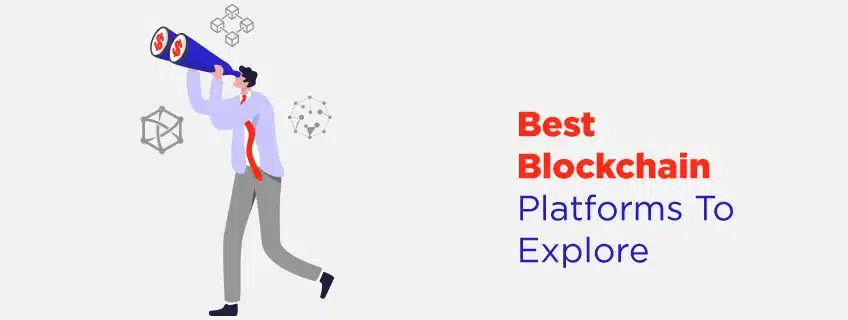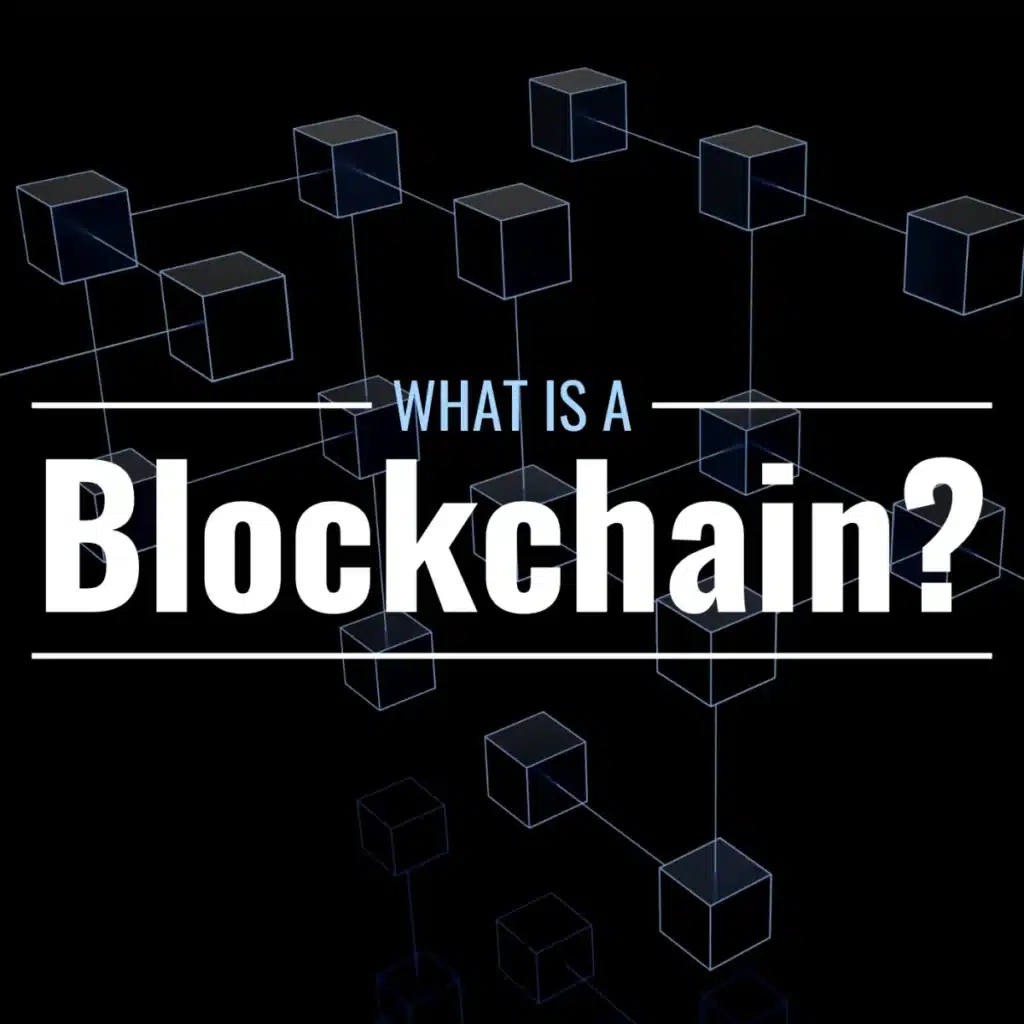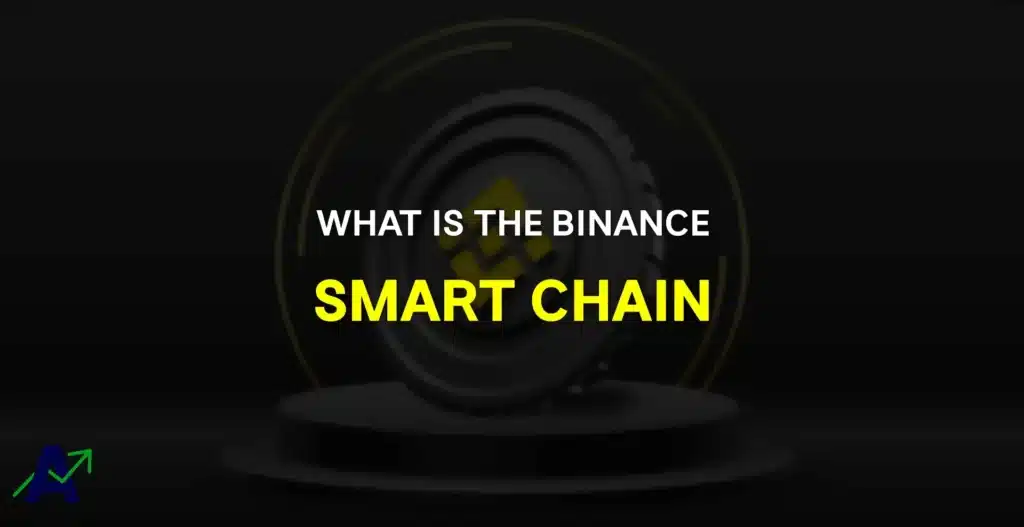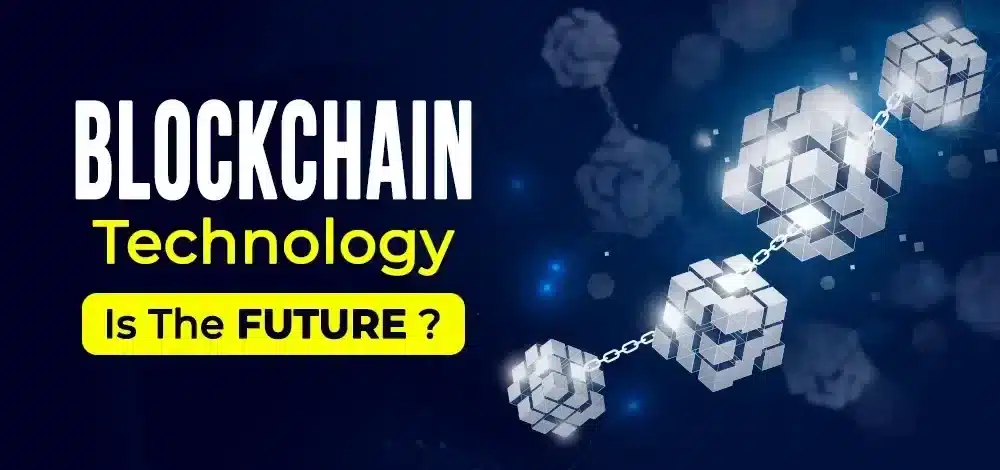
From 2022 to 2030, the blockchain industry is expected to generate USD 5.92 billion in revenue, a CAGR of 85.9%. Blockchain platforms fully revealed their revolutionary potential in 2023. Blockchain, the foundational technology of the information age, will continue to usher in new developments until 2023.
Newcomers to the blockchain space would do well to become acquainted with the industry’s most important platforms. This blog will examine the five most well-known players to deduce what makes them so successful.
What is Blockchain Software?

Let’s start by defining blockchain platforms and how blockchain software functions in today’s online world.
Decoding Blockchain Software
Blockchain software is the digital backbone supporting the design and execution of decentralized apps (DApps) on a blockchain network. You might think of it as the fuel that drives the Blockchain’s immutable ledger of transactions.
Essence of Blockchain Platforms
Blockchain platforms are fundamentally decentralized networks that make it possible to create and launch blockchain-based apps. Offering tools, protocols, and frameworks gives developers the canvas for creating new solutions across diverse industries.
Top 5 Blockchain Platforms Shaping 2023
Now that we have gathered what blockchain software is, let’s look at the top 5 most popular Blockchain Platforms engaging the maximum audience in 2023.
Ethereum 2.0: Redefining Blockchain Platforms for the Future
The top blockchain innovation mainstay, Ethereum, takes center stage with its significant upgrade to Ethereum 2.0. This update represents a solid commitment to sustainability rather than just a cosmetic makeover. By implementing the Proof of Stake (PoS) consensus method, Ethereum improves scalability and drastically lowers its carbon footprint. Thanks to its robust and smart contract capabilities and vibrant developer community, decentralized applications (DApps) and ground-breaking DeFi initiatives continue to use Ethereum as their platform of choice.
Ethereum 2.0’s Significance
- Contract Smart Strength: Ethereum continues to lead in smart contract capabilities.
- Generous Developer Community: A vibrant community guarantees ongoing innovation and assistance.
Binance Smart Chain (BSC): High-Speed, Low-Cost Transactions

Fast and low-cost transaction processing has propelled Binance Smart Chain (BSC) to the top cryptocurrency exchange rankings. Since BSC runs on the Ethereum Virtual Machine (EVM), it can be used to adapt other Ethereum-based projects. Due to the BSC’s status as a hub for instant, low-cost, and secure blockchain interactions, it is an obvious location for DeFi, NFTs, and gaming apps.
Binance Smart Chain (BSC) Significance
- Using voting machines at BSCs mainly results in the following: Since BSC is Ethereum-compatible, you should be able to make the switch easily.
- In the context of the decentralized finance and non-fungible token industries, a “DeFi and NFT Hub” denotes a hub that serves as a meeting place for those working in both fields.
Polkadot: Cooperation Unchained
With its distinct multi-chain design, Polkadot is a master weaver, effortlessly fusing various top blockchains. With Polkadot, developers can create parachains—customized blockchains to fit specific use cases—while promoting scalability and cross-chain connectivity. It sees itself as an orchestrator of interoperability as much as a platform and is a vital component of the blockchain ecosystem.
Why Polkadot Is So Good:
- Multi-Chain Flexibility: Empowering developers with the capacity to design bespoke blockchains.
- Focus on Scalability: Giving scalability top priority to provide smooth integration into various applications.
Cardano: Durability and Continued Progress
Cardano stands out from the competition with its systematic and research-based approach to blockchain development. The native cryptocurrency, ADA, has become more well-known due to its energy efficiency, sustainability, and financial feasibility. Continuous improvements, like the Alonzo hard fork, make DeFi and DApps more widely used. Cardano supports systematic and deliberate development in a world where change happens quickly.
Particular Qualities of Cardano:
- Development Driven by Research: based on in-depth study to provide reliable and safe solutions.
- Alonzo Hard Fork: Creating opportunities for more extensive blockchain applications and improved functioning.
Solana: Blazing a Trail with Speed and Affordability
Solana’s creative approach is affordable and applicable in the real world. Solana is the fastest-growing blockchain platform because of its quick confirmation times and cheap transaction fees. Web 3.0 initiatives, non-fungible tokens (NFTs), and decentralized finance (DeFi) are just a few sectors drawn to its potent Blockchain. Because of its commitment to scalability, Solana is both a competitive and fascinating glimpse into the bright future of blockchain technology.
Reasons for Selecting Solana:
- Very simple and very powerful
- It is unparalleled in both speed and efficacy.
Selecting a Top Blockchain Platform

Consider these factors before using Blockchain for your business:
1. Development of Platform Blockchain?
The Blockchain platform must adapt to more transactions and users. Scaling blockchain apps is difficult. Select a network and vendor based on quality, pricing, and usability if your application is not transaction-intensive and could use a simple escrow arrangement.
2. Which Blockchain do you need?
Next, pick the proper Blockchain for your business. Individuals can administer public blockchains, but syndicate-managed private blockchains offer better performance, permissions, and security. Private blockchains protect hybrid blockchain operational data.
3. Which Languages Does the Platform Blockchain Support?
Blockchain technology is young, but several new programming languages exist. Check SDK programming languages before choosing a blockchain platform.
4. How popular is the platform?
Check to explore GitHub or Reddit blockchain platforms. Remember that most Blockchain software handles transactions swiftly and affordably. Choose a popular platform.
5. Which Blockchain Consensus Protocol Does the Platform Use?
Working on the best blockchain platform with experience with its consensus mechanism may be more accessible. You must know which consensus protocol a blockchain platform supports; thus, multiple algorithms like Proof of Stake, Proof of Work, Proof of Burn, and others are accessible.
6. Does the Platform Support Smart Contracts?
After achieving contract conditions, the application operates autonomously, eliminating intermediaries. Not all blockchain platforms support smart contracts, which validate, initiate, and enforce blockchain actions.
The Future of Blockchain Platforms: A Glimpse Beyond 2023

As the landscape of blockchain technology keeps changing, we should expect more platform rivalry and innovation. Sustainability initiatives and interoperability solutions will probably be crucial to the sector’s development. Regulations will also influence how blockchain platforms function and communicate with conventional financial institutions.
Conclusion
By 2023, numerous blockchain platforms cater to various needs, and the ecosystem is still evolving. These blockchain platforms are not just things but represent the means to a speedier, safer, and more inclusive digital future. Whether you like to play games, make money, or just browse the internet, there is a platform blockchain for you.
It is crucial to seriously consider your unique use cases, scalability needs, and long-term objectives to fully realize the promise of Blockchain for your projects and business endeavors. Regarding trusted blockchain solutions, advansappz is your technology partner for all your security and blockchain platform consultation needs.
Frequently Asked Questions
Because of its durability, popularity, and extensive support for smart contracts, Ethereum is the clear choice for developers.
The answer is that developers can have an easier time working on pre-built open-source blockchains like Ethereum, Fabric, EOS, or Cardano.
Having the necessary skills and expertise makes becoming a blockchain developer easier, even though it can be difficult for novices.
To meet different demands, there are three primary types of blockchains: hybrid, private, and public.
When selecting the best platform for your business, consider many variables, such as the platform’s popularity, consensus protocol, smart contract capabilities, supported languages, development status, and scalability requirements.












